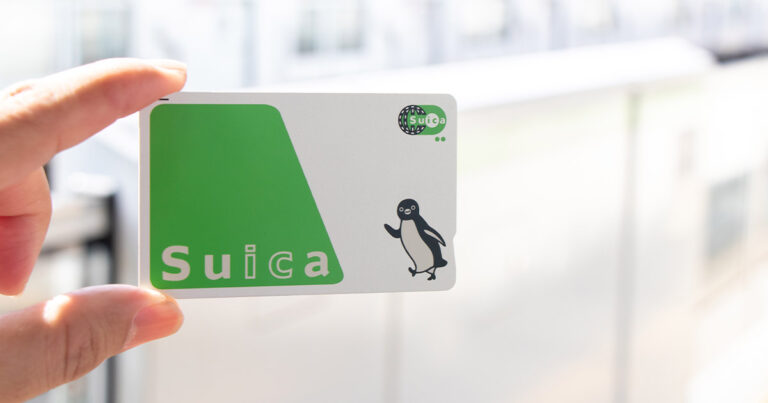Moving to Japan as an Indian? Discover the top challenges you might face…

This article covers:
As of 2023, around 46,262 Indian nationals call Japan home. Most of them are settled in Tokyo, thriving in IT and creative fields. So, if you’re considering a move to Japan, you’re in good company! You’ll find a vibrant community to connect with.
But let’s be real, moving to Japan as an Indian comes with its own unique set of challenges. The cultural differences, language barriers, and lifestyle changes can be quite a ride. Here are some key things to keep in mind before you pack your bags.
Cultural Adjustments
Food Preferences
Let’s dive into food because, let’s face it, we eat at least three meals a day and a hungry person is never a happy one.
It all boils down to a few things: taste, cooking at home, and eating out.
First up, let’s talk taste. We all know Indians love their spices and bold flavours. In Japan, you might experience a bit of a food shock since the cuisine tends to be less spicy and more focused on umami flavours.
And if you’re craving that fiery kick, Japanese chilli powder might not quite do the trick.
But don’t worry, you’ve got options. You can always cook at home or explore dining out to satisfy your taste buds.
For vegetarians, there’s plenty to choose from. You’ll find Indian, Italian, Middle Eastern, and other international cuisines offering delicious vegetarian options. It’s always a good idea to check online reviews or restaurant websites to ensure they meet your dietary preferences.
If you’re looking for Indian food, Tokyo has plenty of small Indian restaurants. From the bustling streets of Roppongi Hills to Ginza, Shibuya, and even along the JR lines, you’ll find spots that cater to your cravings.
Northern Indian food is generally more popular than Southern Indian cuisine, but you can find both. Naan and curry are especially beloved, although the curries might taste slightly sweeter than you’re used to, and are usually served with sticky Japanese rice. If that’s not your thing, most restaurants also offer basmati rice for a small additional charge.
For South Indian cravings, places like Ebisu and Ginza have restaurants offering a variety of dosas and full South Indian meals.
If you prefer cooking at home, you’re in luck! Indian spice stores, even in areas like Roppongi Hills, carry all the spices, lentils, oils, and ready-to-eat parathas you might need. Plus, your average supermarket often stocks ingredients essential for Indian cuisine, so you should be all set.
That said, adapting your taste buds to local flavours is the key, especially since you’ll likely need to socialise at work. If you start enjoying Japanese and Chinese cuisine, Japan becomes a fantastic place to live, work, and enjoy!
Etiquette
In Japan, manners and punctuality are incredibly important, which is quite a contrast to the more relaxed and informal Indian culture. There are specific rules for almost everything, from using public transport to disposing of waste.
Being on time is crucial. If you’re supposed to be somewhere at 9 am, you should aim to arrive before 9 am.
Take recycling, for instance. Japan is very strict about it. You’re expected to recycle as much as possible, which means thoroughly cleaning your trash, sorting it by type, and labelling it correctly.
You also need to buy special bags for combustible garbage, available at grocery stores but licensed by the city (think of it as a garbage tax).
This kind of garbage is picked up on Wednesday and Saturday mornings. Recyclable items like glass, aluminium, and plastic (each in separate boxes, including different colours of glass) are collected on Thursdays. Paper and cardboard are collected on Fridays.
Special garbage, like a broken umbrella, requires a special bag and is picked up on the 1st and 3rd Mondays of each month. If you make any mistakes, your garbage won’t be collected.
On public transport, it’s all about being considerate. Speaking on the phone in trains is prohibited, and eating is also frowned upon.
When you meet people, bowing is customary. You’ll find yourself bowing to everyone you meet and receiving bows in return.
Adjusting to these cultural norms can take some time, but understanding and respecting them will make your transition to life in Japan much smoother.
Lifestyle and Living
Accommodation
Apartments in Japan tend to be smaller, which might be an adjustment for many.
Festival Celebrations
One of the great things about being Indian is the endless festivals we get to enjoy. While many Indians in Japan live near Nishi-Kasai station on Tokyo’s Tozai subway line, not all traditional Indian festivals are widely celebrated here. Finding a community to celebrate with can be challenging.
And when you do celebrate, remember to follow the local rules and customs to ensure everything goes smoothly.
Language Barrier
Chances are, you might end up working in an international company where English is the main language. But that doesn’t mean you can skip learning Japanese altogether. Sure, you can rely on Google Translate for menus and signs, but you can’t use it all the time.
Even though it’s not mandatory to know Japanese, learning it can make daily life a lot easier. From shopping and travelling to social interactions, having some Japanese under your belt will help you navigate and enjoy your new environment much more smoothly.
Work Environment
Working at a Japanese company can be quite different from what you’re used to in India. The environment is more structured and formal, with long working hours and less informal communication.
If you’re joining a Japanese company, you’ll need to adapt to their work style. This includes having a small desk with no partitions, focusing strictly on work-related conversations, avoiding snacks like candies or chips during work hours, and often working overtime.
It can be challenging for an Indian to adjust to this style, especially in the first few weeks or even months. But if you enjoy your work, getting used to these aspects will be part of the experience.
Legal and Practical Considerations
Driving
One common question is, “Can I drive in Japan with an Indian licence?” The answer is yes!
Before you leave India, make sure to get an International Driving Permit (IDP) from the RTO that issued you your licence. There’s no test required.
All you need to do is fill out a form, attach your original licence along with copies of your passport and visa, and pay a fee plus a service charge. Once done, you’ll receive your IDP.
With an IDP, you can drive in over 137 countries, including Japan.
That said, you don’t really need a car to get around in Japan, especially in big cities like Osaka and Tokyo. Owning a car in cities like Tokyo can be quite expensive due to costs like insurance, parking, and maintenance.
If you’re planning a road trip, consider renting a car instead. It will save you from long-term expenses and give you the flexibility to explore.
Citizenship
When settling down as an expat, it’s worth considering the citizenship route in the long run. Japan does offer citizenship, and it takes just five years. However, there’s a catch: you need high Japanese proficiency, and Japan doesn’t allow dual citizenship. So, you’ll need to invest time and money into learning the language and be prepared to give up your original citizenship.
Quality of life in Japan can be incredibly high
The streets are clean, crime rates are low, you can walk almost everywhere, and there’s plenty of nature and short trips around the country to explore.
However, if natural disasters like earthquakes, small apartments, and lack of festivities are deal breakers for you, you might want to consider looking elsewhere.
Alternatively, you could just take a quick trip to Tokyo for a few days to see how you like it before deciding to move there full-time.
Before you go…
Are you planning to move to Japan from India? Or maybe you’re already in Japan settling down. The next big question you might have is how to send money back home. That’s where the challenge starts, thanks to those hefty fees from nasty hidden charges.
But don’t worry – Instarem is here to help! This financial app has your back with quick and secure overseas money transfers. There are no hidden fees, just near mid-market rates and much lower FX fees as compared to the banks.

*Rates are for representational purposes only.
Try Instarem for your next transfer by downloading the app now!
Disclaimer: This article is intended for informational purposes only. All details are accurate at the time of publishing. Instarem has no affiliation or relationship with products or vendors mentioned.
Instarem stands at the forefront of international money transfer services, facilitating fast and secure transactions for both individuals and businesses. Our platform offers competitive exchange rates for popular currency pairs like USD to INR, SGD to INR, and AUD to INR. If you're looking to send money to India or transfer funds to any of 60+ global destinations, Instarem makes it easy for you. We are dedicated to simplifying cross-border payments, providing cutting-edge technology that support individuals and businesses alike in overcoming traditional fiscal barriers normally associated with banks. As a trusted and regulated brand under the umbrella of the Fintech Unicorn Nium Pte. Ltd., and its international subsidiaries, Instarem is your go-to for reliable global financial exchanges. Learn more about Instarem.

























